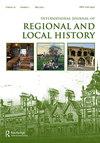千禧年之交波尔图多中心城市发展与治理研究
Q2 Arts and Humanities
International Journal of Regional and Local History
Pub Date : 2020-07-02
DOI:10.1080/20514530.2020.1835060
引用次数: 2
摘要
摘要本文通过阐述波尔图第一代大都市治理立法和领土动态,为葡萄牙大都市规划领域提供了新的知识。总体前提是,20世纪90年代波尔图多中心主义的兴起及其市中心的削弱,及时反映了葡萄牙第二大大都市的城市区域发展进程。自那时以来,对该市的战略投资大大有助于填补这一活动真空,以至于人们现在开始担心商业和旅游业的绅士化。波尔图大都会区作为全国第二重要的城市区域,受到了极大的影响,需要新的规划机制和战略来尝试完全缩小波尔图市的活动和空间差距,并高效有效地帮助规划整个北部大都会。本文章由计算机程序翻译,如有差异,请以英文原文为准。
A Study of Porto’s Polycentric Metropolitan Development and Governance at the Turn of the Millennium
ABSTRACT This article contributes new knowledge to the area of metropolitan planning in Portugal by shedding light on the first generation of metropolitan governance legislation and territorial dynamics in Porto. The overall premise is that the rise in polycentrism in Porto and the weakening of its city centre in the 1990s was a timely representation of the city-region development process taking place in Portugal’s second largest metropolis. Strategic investments in the city since then have substantially contributed to filling that activity vacuum to the point where concerns have now emerged about commercial and touristic gentrification. Porto’s metropolitan area was greatly affected by being the second most important urban area in the country and new planning mechanisms and strategies were needed to attempt to fully close the activities and spatial gap in the city of Porto as well as to efficiently and effectively help plan the whole northern metropolis.
求助全文
通过发布文献求助,成功后即可免费获取论文全文。
去求助
来源期刊

International Journal of Regional and Local History
Arts and Humanities-History
CiteScore
0.30
自引率
0.00%
发文量
10
期刊介绍:
The International Journal of Regional and Local History aims to publish high-quality academic articles which address the history of regions and localities in the medieval, early-modern and modern eras. Regional and local are defined in broad terms, encouraging their examination in both urban and rural contexts, and as administrative, cultural and geographical entities. Regional histories may transcend both local and national boundaries, and offer a means of interrogating the temporality of such structures. Such histories might broaden understandings arrived at through a national focus or help develop agendas for future exploration. The subject matter of regional and local histories invites a number of methodological approaches including oral history, comparative history, cultural history and history from below. We welcome contributions situated in these methodological frameworks but are also keen to elicit inter-disciplinary work which seeks to understand the history of regions or localities through the methodologies of geography, sociology or cultural studies. The journal also publishes book reviews and review articles on themes relating to regional or local history.
 求助内容:
求助内容: 应助结果提醒方式:
应助结果提醒方式:


